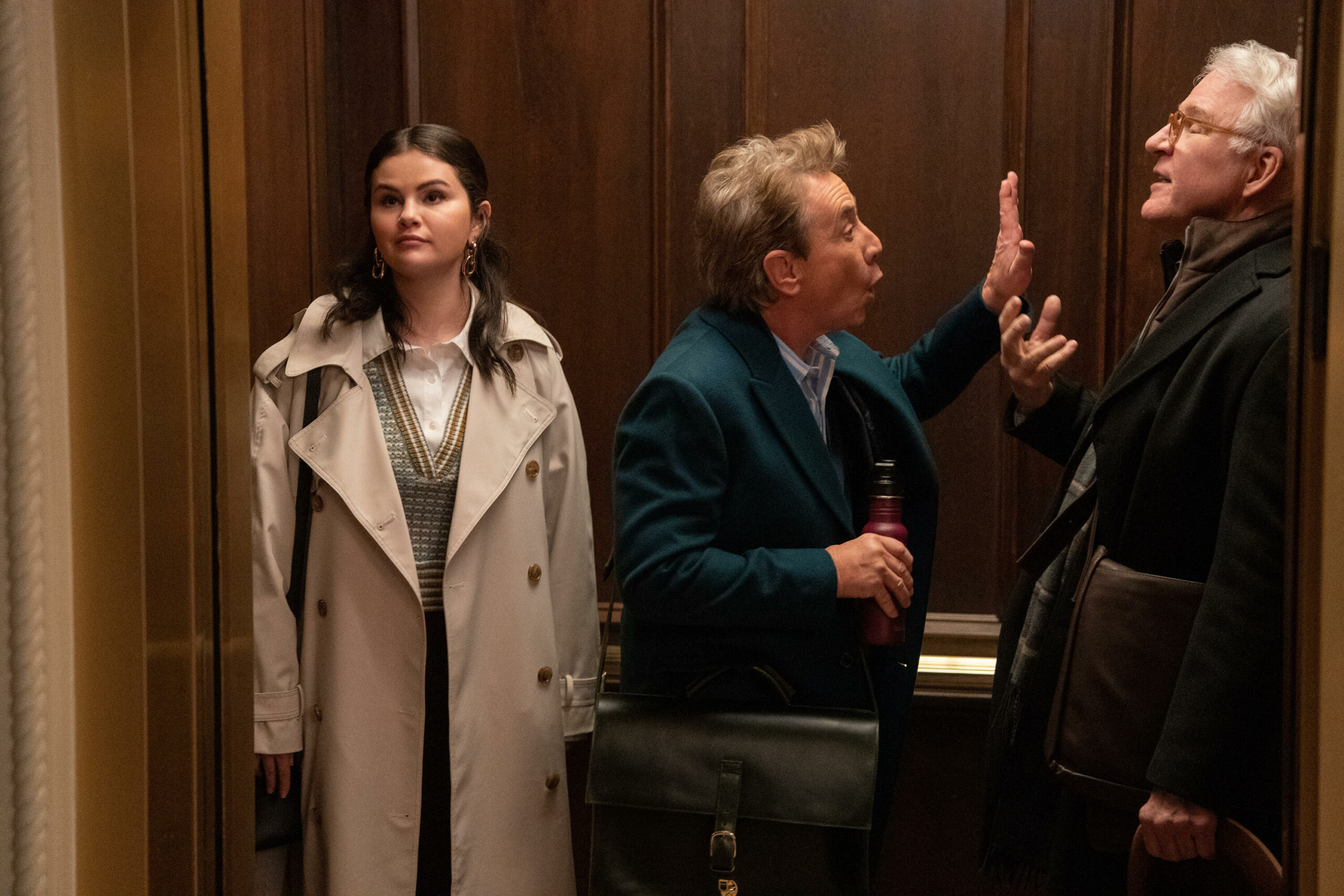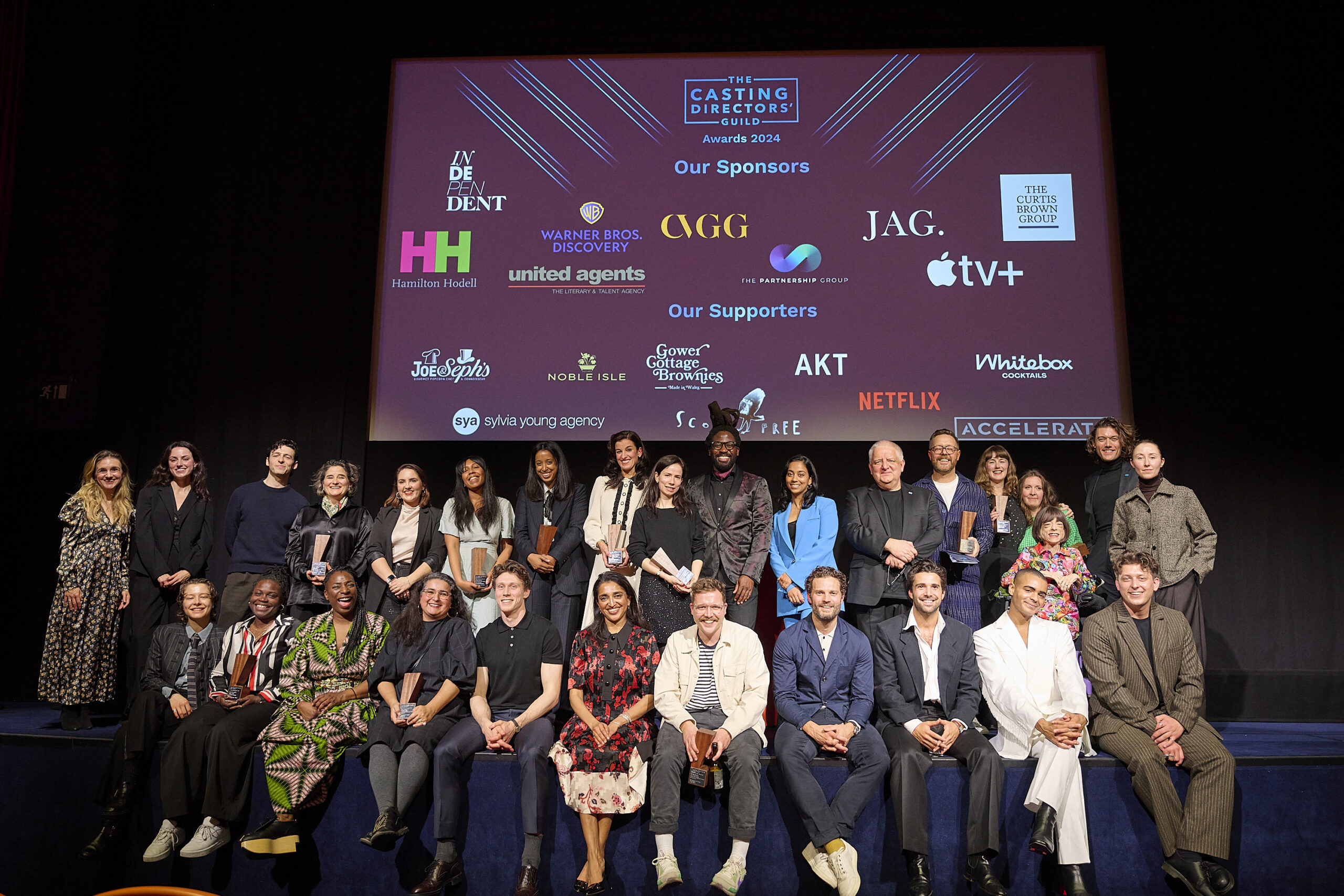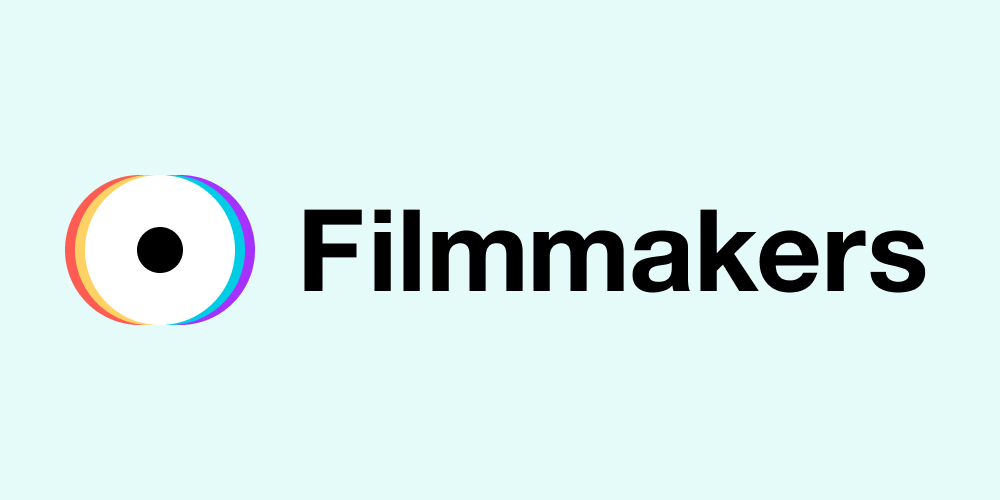Casting Director Destiny Lilly shares her experience of being nominated for an Emmy for ‘Only Murders in the Building’ and tips on how to get work as an actor in the USA
Destiny Lilly is a US casting director and President of the Casting Society (CSA). Her career has spanned theatre, film, television and one of her most recent projects – the hit comedy-drama series Only Murders in the Building – has seen her nominated for an Emmy for ‘Outstanding Casting for a Comedy Series’.
We were fortunate enough to get the chance to speak to Destiny about the nomination, her experience working on the hit show and what advice she has for international actors looking to work in the USA. Here’s what she shared:
Hi Destiny. Congratulations on your Emmy nomination for ‘Only Murders in the Building’! How does it feel to be nominated?
It’s really exciting. As a casting director, you don’t always get acknowledgment for your work. A lot of the time, people notice when casting is not good more than when casting is good. It’s always really nice to be acknowledged and to have people recognise the work that you’ve done.
We’re still working on getting that acknowledgement from some of the other major awards, like the Oscars and the Tonys, which I hope will come soon, because casting directors are a really important part of the process.
How did you become involved in the casting for ‘Only Murders in the Building’?
It was at the point when TV and film production started coming back, about five or six months into the pandemic. My colleague Bernie Telsey called me and said, “There’s this new TV show. It’s got Steve Martin, Martin Short and Selena Gomez. Do you want to work on it?” I was like, “Yeah, I’ll work on anything. Nothing’s happening.” I read it and was like, “Wow, this is really good.”
I was really happy to get the call about working on it because, at that moment, the theatres were still shut down. Our showrunner, John Hoffman, who is just the loveliest person, said, “I’d really love to fill the building with theatre actors.” I was like, “You’ve come to the right place,” because I cast so much theatre.
I love all actors in general, but theatre actors especially, because they do such detailed work and oftentimes don’t get paid a lot. It’s really about exploring acting as a craft. I was really happy to be able to help a group of theatre actors get their first jobs back during the height of the pandemic.
What was your casting process like for the show?
We started in 2020. Everything was virtual. We requested self-tapes from actors. Then, we would do Zoom callbacks for most of the new roles with our casting team, showrunner, producers, occasionally some of the writers and episode directors. That worked really well. We were able to get to know people a little bit, but also allow people to tape, because it just wasn’t a time when we could meet in person. We didn’t even meet our showrunner in person for about a year!
Usually, when you’re a casting director, you visit the set at some point. You get to say hi to everybody. We couldn’t visit the set. We couldn’t get to see people. The only way we were able to interact with people was on Zoom. I got really good at running Zoom callbacks, taping them and reading with the actors.
Season 3 includes stars like Meryl Streep and Paul Rudd – how involved are you with the decision to cast ‘A-listers’, and how keen were they to be on-board?
One of the great things about our show is that, because we have such quality people involved [like] Steve Martin, Martin Short, Selena Gomez, they’re able to attract other people who want to work with them. Our showrunner, John Hoffman, is also just a really talented writer. We have an amazing group of writers in the writer’s room. They’re writing scripts that people want to be a part of.
With Paul Rudd, we were in season 2 [and] the question was [which] famous actor can we get to play a famous actor in a Broadway show? We made lists. We went through all these people. When we landed on Paul Rudd, and he said yes, we were like, “That’s amazing that he wants to do this.”
Then, with Meryl Streep, John Hoffman, our showrunner, was creating the story of season 3 and was like, “I have a role that I think would be right for Meryl Streep.” I feel like Meryl Streep chooses you, you don’t choose her. But she’d worked with Steve Martin before. They were able to get her the script. She signed up and came on board.
It’s a really nice group of people. Sometimes, actors on the show would come even when they weren’t necessarily called that day, because they wanted to make sure they were supporting the other actors. Or they’d be done shooting their scenes and it was just the other side of those scenes. But they would stay to really give the actors that they were working with the support they need, which I think is a testament to the great work ethic and environment, but also the quality of the writing.
Does the casting process differ between casting for comedy and casting for other genres like drama?
Not really. You’re still looking for the same things. With comedy, it’s really important that people land the joke, especially when you’re doing a co-star or a smaller role, because a lot of the time, there’ll be one joke in that bit – they have to land it.
If people aren’t quite getting it, you’ll want to coach them and shape it a little bit so that they hear where the joke is. But hopefully, they hear it naturally because we’re looking for someone who has that comedic sensibility already.
It’s the same for drama. You’re looking for someone who’s able to find where the vulnerable moment is, or where the dark moment is, where the person goes internally.
In a lot of ways, I think acting is a bit like music, where the script is the sheet music. You can play all the notes, but each person plays them a little differently. This person will sustain longer here. This person will let the emotion fill here rather than here. You think of a singer who sings a cover version and it’s entirely different. A lot of the time, it’s the actors who can find the way to take that script and make it their own. [They] find the beats that make it special.
You’re based in New York, but also have a network in London. How does the casting process differ between the UK and US?
I’ve found working with UK collaborators, especially in theatre, there’s a very different vibe at the audition.
In the US, people come in, we’re behind a table. They do something. We say thank you. We might ask them to do it again. With a lot of UK directors, it’s much more conversational. They may not be behind a table. They might just be sitting in a chair, or they might be like, “Let’s have a conversation.”
I like a mixture of the two, where the actor feels like they have the right to take up the space, because I want to see what they’re going to do when it’s just them on stage, but also making it clear that this is a conversation. We’re equals. We’re all talented people working together.
I think it’s important to be really personal with people. I got into this business because I like people. I feel like if you don’t like people, you probably shouldn’t be a casting director, because it’s a lot of people to deal with.
I’m glad that we’re able to see people in person again, because I didn’t get into [casting] to sit in my house at a computer all day. I got into it because I love working with actors, directors and writers.
On your website, you say you have a deep love for innovative new projects. What would be your dream project to work on?
I really love when people bring different things together. My dream project would be a musical version of the Berry Jenkins film Moonlight with music by Frank Ocean. How amazing would that be?
I need to now manifest this and make it happen because I just think that’s a near-perfect film and a way to make it even more exciting would be [to make it] a musical. Frank Ocean seems like a really good fit to make the music for that.
I love big splashy musicals, but I also really love musicals that are smaller and more intimate. I feel like [Moonlight] would be more than all-singing, all-dancing. I could see these wonderful dance sequences, the swimming. It would be wonderful.
You also say you love a casting challenge. What has been your biggest challenge to overcome in your career so far?
I think the biggest challenge for me in my career was that I didn’t know that I wanted to work in casting until after I was through university, through drama school, through all those things. I think the biggest challenge was figuring out how to actually get work in casting when I didn’t follow the traditional route because in the US, traditionally, people would intern at a casting office. Then, if you did a good job, they’d hire you as an assistant and then eventually an associate and eventually you make your way. It’s very much an apprenticeship system.
By the time I knew that I wanted to be in casting, I was at a point where I wasn’t in college anymore. I couldn’t have interned if I wanted to. I wasn’t in a position where I could work for free. I had to really carve out my own jobs basically by saying, “Hey, I’m a casting director,” and start casting short films, casting commercials, casting industrials, casting a lot of small things at first.
[This] turned into doing more indie films, which then turned into doing more theatre. Then, about six years ago, I started working with the Telsey Office. That opened a lot of doors for me.
How do you know if an actor is right for the part?
I think a big part of it is instinct. The thing about casting is it’s subjective. Back to the idea of acting being like music, [the right person is] someone who’s able to really hit the notes in a way that sounds right but also fresh.
After you’ve watched a bunch of tapes or after you’ve been sitting through a bunch of auditions, [it’s] someone who comes in and says the exact same words in a different way that gives deeper meaning you didn’t even know was there. Actors can be really revelatory in the way that they explore material in their auditions.
Sometimes somebody just walks in the room, and you just know. There’s an energy. [They] walk in, and you’re like, “That’s the person.” You can just feel it. The best moment is after an actor leaves an audition and the door shuts. We all look at each other and just go, “Yes. My work is done.”
I love being able to tell people that they got roles. Most of the time, they have agents. I get to tell the agent. But every once in a while, it’s someone who doesn’t have an agent, so I get to call them directly. It’s the best feeling to get to be like, “Hey, you’re going to be on Broadway.”
Actors work so hard and I get to play a small part in helping their dreams come true – which is pretty great.
What advice would you give for international actors looking to work on US productions?
I think that this is a really good time for that, given that so much of casting is virtual. You don’t necessarily have to be in LA or New York to get cast in a project that’s based out of the US. I would say if you have an agent, really encourage them to be submitting you for [US] projects, because for the right person and if we have enough time, we’ll work to get a visa.
I just cast a play at a theatre in New Jersey. We were looking for an actor who felt authentically European. I asked an actor to tape who happened to be German but is based in the UK. He was wonderful. We did it with enough time that we got him a visa. He just started work on this play. That was [a case when] I reached out to his agents, because they probably wouldn’t have thought to submit him for a play in New Jersey.
Ask [your agent] to submit you for things in the US, noting that you don’t have a visa. That’s very important, because it can take three or four months [to get one]. It’s not a short process for people without a visa but you can get one. I would say that [goes for] theatre and film.
Television’s a little harder, unless you’re casting a series regular, because we cast television maybe two or three weeks out.
If there are actors that are studying, I would encourage them to spend some time studying in the US if they can afford it and if they find a school that they’re excited about, because they’ll get to learn certain things. Also, it’ll help them with their American accent if they’re trying to get work playing American characters.
One of the hardest things is that actors from all over come to the US and think, “I have to be American,” or, “I have to find a way to act like an American.” There are many actors who do that very well. But also, not losing that authenticity you have and being able to be authentically who you are will also open doors for you.
Look for the things that are uniquely you, the things you’ll be able to bring to a project. Sometimes those things are language skills. I’m always looking for actors who speak different languages [and] play instruments. If you have special skills like that, work on them, highlight them [and] continue to hone them.
The biggest thing that actors can do and that they sometimes forget about, is just honestly work on your craft. [Actors] should focus more on actually making sure that their acting is well thought out, that they’re approaching the role in a way that makes sense, that they’ve read the script, that they’ve done the research, all the things they need to do to make that audition really strong.
Sometimes, people are like, “I’ve got an audition.” They think that was the goal. But then, you need to come in for that audition or tape that audition and have it be really strong.
I know it’s so hard to find opportunities that sometimes, just getting the opportunity feels like the win. In many ways, it is. But then, once you have the opportunity, you have to know what to do with it.
Thanks to Destiny Lilly for her time and wonderful advice! ‘Only Murders in the Building’ is currently available to stream in the UK on Disney+.
Take a look at our News & Advice section for more casting news and tips from casting directors.












